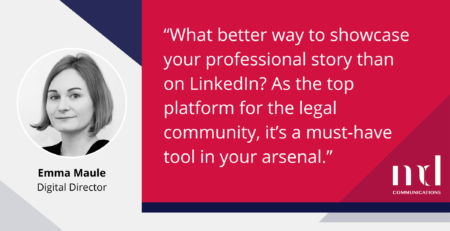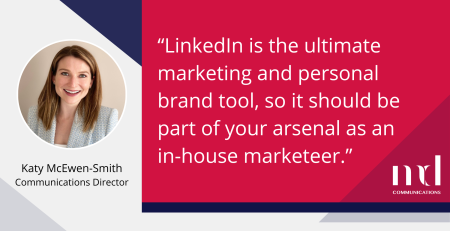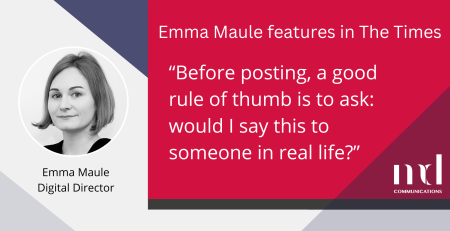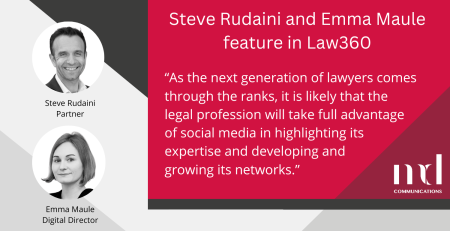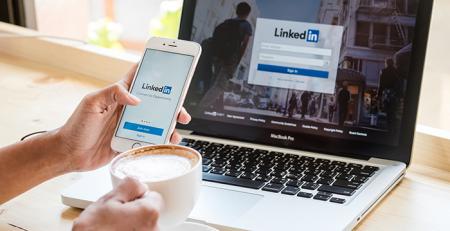We have all seen them: the posts that make you cringe, close your eyes and hope they don’t attract too much negative attention. Then perhaps you click the ‘unfollow’ or even ‘remove connection’ button. That’s how I feel when I see people posting jokes on LinkedIn – especially ones in bad taste.
Without naming the source of the bad joke I’m sure you’ll get the gist if I tell you it included reference to a man groping something inappropriate (is there any other way?) to highlight the way HMRC likes to get people to cough up ‘every last penny’.
I didn’t dare watch to see how quickly it was drowned out in a sea of righteous condemnation.
Watch what you say
Lawyers, of course, have a dark history of making gaffes on both social and professional media.
In 2015 barrister Charlotte Proudman hit the headlines globally after publicly accusing married solicitor Alexander Carter-Silk of ‘objectifying’ her after he complimented her on her ‘stunning’ LinkedIn profile photo.
Mr Carter-Silk, then 57, had suggested they work together, adding: ‘You definitely win the prize for the best LinkedIn picture I have ever seen.’
Ms Proudman bitterly complained some professionals routinely used LinkedIn ‘as if it were [dating app] Tinder’. She responded to Mr Carter-Silk, saying she found his message ‘offensive’ and that she was there for business purposes.
Notwithstanding the misogynistic character of the messaging, the case also threw into stark relief the failure of some lawyers to grasp the golden rule about mixing professional profiles with social media.
Lessons to learn
These salutary lessons don’t mean lawyers should avoid using social media to help promote their business or communicate with clients.
Judicious blogging and tweeting helps to make law firms or individual lawyers look relevant and subject-matter experts while at the same time giving the impression of being approachable and client-friendly.
Twitter is excellent for showing that you’re on top of current affairs and journalists love it, so if you use it frequently, you’ll be able to demonstrate that you’re a good person to call when they need a quote.
On LinkedIn, you probably have connections from all corners of the globe. It is the ultimate networking tool, and you’ll find a wealth of like-minded individuals, peers and possible referrers and clients via building new connections and joining its groups.
Facebook can be useful for gaining new clients through social engagement and paid-for content. Starting Facebook groups, engaging in direct messaging, creating video content – especially if you make the most of Facebook Live – and Facebook Advertising can significantly increase your online traffic, resulting in new leads.
To get ahead of the curve, video content is the newest big thing – 80 per cent of all internet traffic now comes from this medium. If you have a budget, it is more worth it to create one really fantastic video, rather than constantly updating your Twitter feed with staid firm news – law firms should definitely be investing in this area.
The US tend to be ahead of the game when it comes to the business of self-promotion on familiar social media platforms, such as Facebook and YouTube. However, in the UK, we need to tread a little more carefully. The SRA’s and BSB’s more conservative rules regulating the behaviour of solicitors and barristers on social media mean we have to tread more cautiously. But it doesn’t mean we should shy away from putting ourselves out there.
The trick to using social media for business is to know that it requires a professional approach. Lawyers who are good at what they do may not be so good at finessing a message that promotes their knowledge of the workings of the HMRC. As we have seen, in the wrong hands it can look crass and in very poor taste, alienating the very audience you are trying to engage with. And in the worst-case scenario, an off-the-cuff attempt at humour or sexist flattery can turn into a PR disaster.
Social media is anything but straightforward. So if you want to be safe rather than sorry, it’s a good idea to seek expert guidance. Or at the very least, ask for a second opinion.
If you’d be interested to hear more about our personal branding workshops or online reputation audits, please get in touch.



